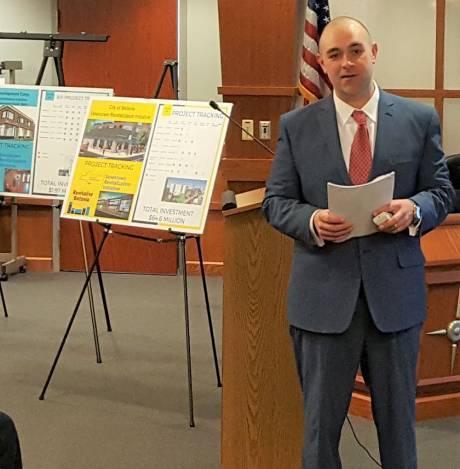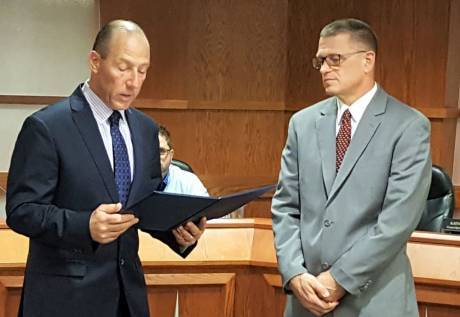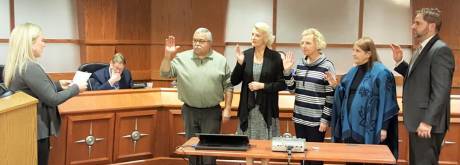City leaders support Rochester engineering firm to oversee Richmond, Harvester road project
City of Batavia officials are recommending a familiar face, so to speak, to handle the engineering and design work for the federally funded pavement rehabilitation of Richmond and Harvester avenues.
Public Works Director Matt Worth reported at tonight’s City Council Business Meeting via Zoom videoconferencing that T.Y. Lin International Group of Rochester has been selected from a pre-approved state Department of Transportation list of engineering firms, with the expectation that preliminary and advanced designs will be completed by early next year.
Worth said the contract has yet to be reviewed by the DOT or the city attorney, but noted that it should be ready for Council to move forward at its next meeting on May 26.
“T.Y. Lin presented a well thought out approach to the project with a very good project team,” said Worth, who headed a selection committee that included City Manager Martin Moore, Maintenance Superintendent Ray Tourt and Water Superintendent Bill Davis. “Their last large project with us was the Walnut Street Reconstruction Project and they also were used for the Ellicott Street streetscape project and all of the Batavia Downtown Business Improvement District streetscape projects.”
Batavian Robert Radley, PE, is the company’s senior vice president and U.S. East Region director.
“We were very pleased when we heard the good news that TYLI had been selected," Radley said. "It has always been our great pleasure to work with the City of Batavia DPW team, and we look forward to rehabilitating Richmond and Harvester Avenue(s)."
The scope of the project is the renovation of Richmond Avenue from State Street to Oak Street and for the entire length of Harvester Avenue (from East Main Street to Ellicott Street). Following the design phase, the schedule lists solicitation of construction bids in the winter of 2020 and into 2022 and overhaul of the roads in the summer of 2022.
While the total cost is anticipated to be $2,040,900, the City will be responsible for only 5 percent – around $102,000 – after applying the CHIPS (Consolidated Local Street and Highway Improvement Program) and Marchiselli funding streams, Worth wrote in a memo to City Council.
Worth said he is confident in T.Y. Lin’s ability to successfully complete the necessary design work, based on previous experience, qualifications and project understanding. He said that terms of the contract come into play following the selection process.
Council did vote on one resolution related to the renovation -- unanimously approving an agreement with the state DOT to appropriate $358,000 up front to cover 100 percent of the federal and non-federal share of preliminary engineering, design and right-of-way incidentals.
“The fees and contract are negotiated once the firm is selected based on the scope of work and estimated hours,” Worth said. “It is not just the budget amount of $358,000 but the final number will likely be close. Billings are done on actual hours charged.”
Dennis Kennelly, T.Y. Lin’s project manager, said his street design team of about eight professionals is finalizing its strategy, with initial tasks to include contracting with a surveyor and analyzing the core of the pavement.
“Our work will focus on getting the pavement in shape, checking out the sidewalks and bringing ramps at intersections up to standards and codes, per ADA (Americans with Disabilities Act), providing for bike lanes and any other condition that is substandard,” said Kennelly, who also played a lead role in the previous City of Batavia projects.
The plan calls for a 3-inch milling and overlay treatment with fibers, along with milling and resurfacing with a hot mix asphalt course. Additional work includes miscellaneous spot pavement repairs, curb repairs, ADA compliant curb ramps, and shared bicycle lane pavement markings.
Kennelly said that once the design work is done, his firm will set up an informational meeting for the public.
On another front, Council members discussed the possibility of returning to City Hall for the May 26th meeting, but decided to stay with the Zoom videoconference setup for at least one more time. They are hoping to return to face-to-face conferences on June 8th, utilizing "social distancing" protocol.




